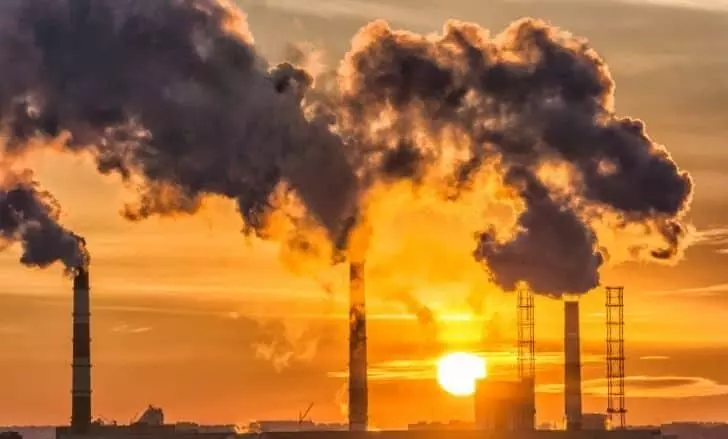
Study says exposure to air pollution increases COVID-19 deaths
text_fieldsLong-term exposure to air pollution is linked to increased death rates from COVID-19, says a study published in the journal Cardiovascular Research. The study estimated that around 15 per cent of deaths from the novel coronavirus in the world could be attributed to the incessant exposure to high-level air pollution.
The research team that includes professors from Max Planck Institute for Chemistry, Germany, Cyprus Institute, Nicosia and Johannes Gutenberg University revealed that the proportion of such deaths in Europe is 19 per cent, East Asia 27 per cent and North America 17 per cent.
According to the report, this proportion is an estimate of the fraction of COVID-19 deaths that could have been avoided had the people been exposed to lower air pollution levels without fossil fuel-related or other anthropogenic emissions. However, it does not imply a direct cause-effect relationship between air pollution and COVID-19 mortality.
The particulate matter (fine particles in the air) and COVID-19 virus enter the human body via the lungs to cause endothelial diseases leading to narrowing and stiffening of blood vessels. Long-term exposure to both particulate matter and COVID-19 virus together can increase the vulnerability to endothelial diseases and less resilience to the virus, says Prof. Munzel.
The study made use of satellite and ground-based data of global exposure to fine particulates, along with an atmospheric chemistry model, combined with data from the U.S. and China relating to air pollution, COVID-19 and SARS.
The study concluded by pointing out that the pandemic ends with vaccination, but there is no vaccine against poor air quality and climate change. Hence mitigating emissions and transitioning to a green economy with clean renewable resources is the ultimate solution to step up the condition of public health and limit climate change.






















